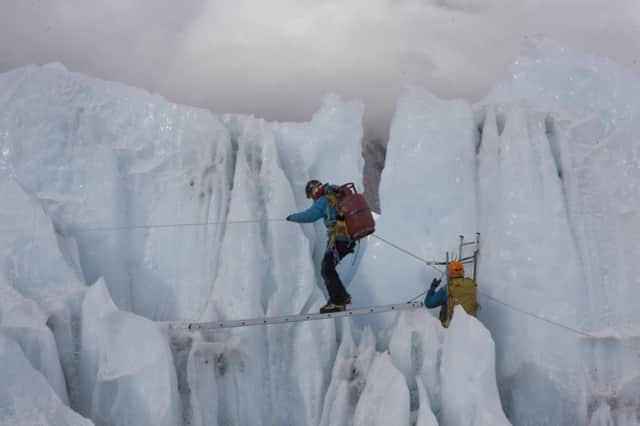Roger Cox: Sherpa, a brilliant but sad document of post-colonialism


To provide a little context, Peedom’s film was made in 2014, and is ostensibly about the horrific avalanche that claimed the lives of 16 Sherpas in the April of that year. Its real focus, however, is the aftermath of the disaster: the Sherpas’ attempts to improve what they see as exploitative working conditions by effectively going on strike, and the reactions of a group of Western climbers when they discover that, as a result of the strike, they’re not going to get a shot at summiting Everest.
The exchange that made my eyes pop takes place between the well-respected New Zealand mountaineer Russell Brice, leader of the commercial expedition with which Peedom is embedded, and one of his American clients. At this point, Brice’s guests have just returned to Everest Base Camp following an acclimatisation exercise on a nearby mountain, to discover that the Sherpas have, in a roundabout way, voted to withhold their labour for the rest of the season, thereby ruling out any further attempts on the world’s highest peak. (Because without teams of Sherpas carrying equipment up and down the mountain for them, risking their lives multiple times in the process, the vast majority of people who climb Everest wouldn’t stand a chance of getting to the top.)
Advertisement
Hide AdBrice: We know that there’s only a group of four or five guys that are, er, causing this problem, but then they excite 300-odd guys, and when you have mob rule, what can we do? Effectively what these militant Sherpas are saying is that if our Sherpas go through the [Khumbu] icefall then they’ll beat them up.
Client: Do you know who employs them Russ, these four or five?
Brice: I know who employs some of them, yeah.
Client: And there’s no way you can talk to their owners and ... I mean, if this was one of your Sherpas you could have him removed from the mountain.
Was that an unfortunate, post-colonial slip of the tongue there, the use of the word “owners” rather than “employers”? Perhaps, but even if the client meant to say “employers” isn’t there still something a little sickening about these wealthy Western climbers – some of whom, we are told, have paid as much as $75,000 to make an attempt on Everest – still desperately trying to realise their personal dreams by working all the angles, even as the impoverished communities in the valleys below mourn the deaths of 16 of their menfolk? Might it have been a little easier to warm to these individuals if they had returned to Base Camp and said to Brice “yes, of course, we understand the magnitude of what has just happened, we understand that the Sherpas are upset, of course we respect their wishes not to climb again this year, and what’s more, we would like to offer to use our considerable financial resources to help the families of those who died in any way we can”?
But no, instead we are subjected to scenes of grown men crying because they aren’t going to be able to complete the climb, and talking about how “devastated” they feel. One of the group – another American – at least has the decency to say “I’m going to feel better going home knowing that we didn’t climb up that mountain after the big tragedy.” His, however, appears to be the lone voice of reason.
What is it about the desire to climb mountains – particularly big ones – that causes people to behave in this way? Psychologists, both professional and amateur, will have a field day analysing some of the people featured in this film. Students of orientalism and post-colonialism, too, will also find much of interest.
Advertisement
Hide AdOn the whole, Brice comes across as one of the good guys, but during a meeting with his Sherpa team following the strike, even he lapses briefly into dated, colonial-sounding language. “Before it was always friendly smiley Sherpa always helping,” he tells them. “These guys [the people leading the strike] have spoiled your reputation.” The point, of course, is that as of now the Sherpas are done conforming to the subservient, “friendly smiley always helping” role that we in the West have created for them.